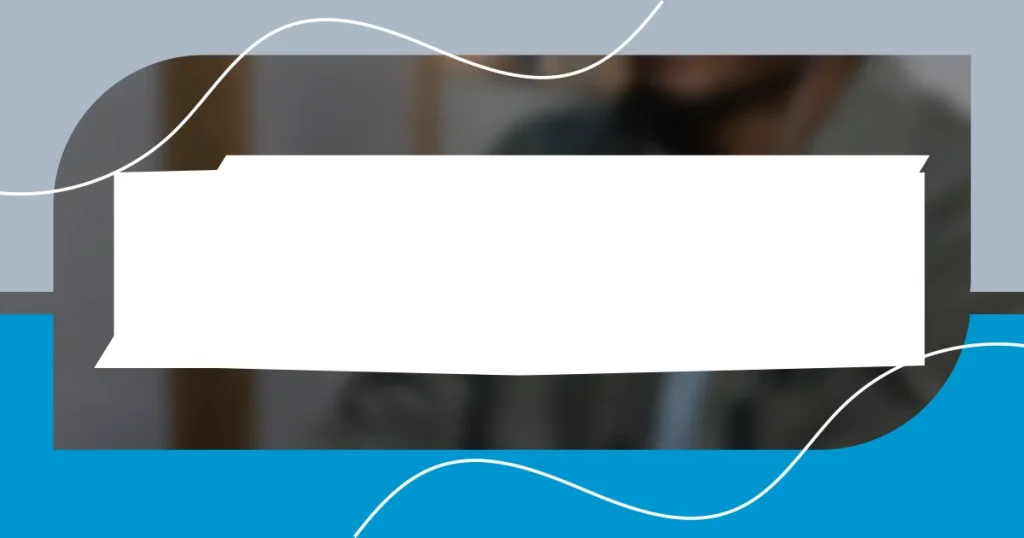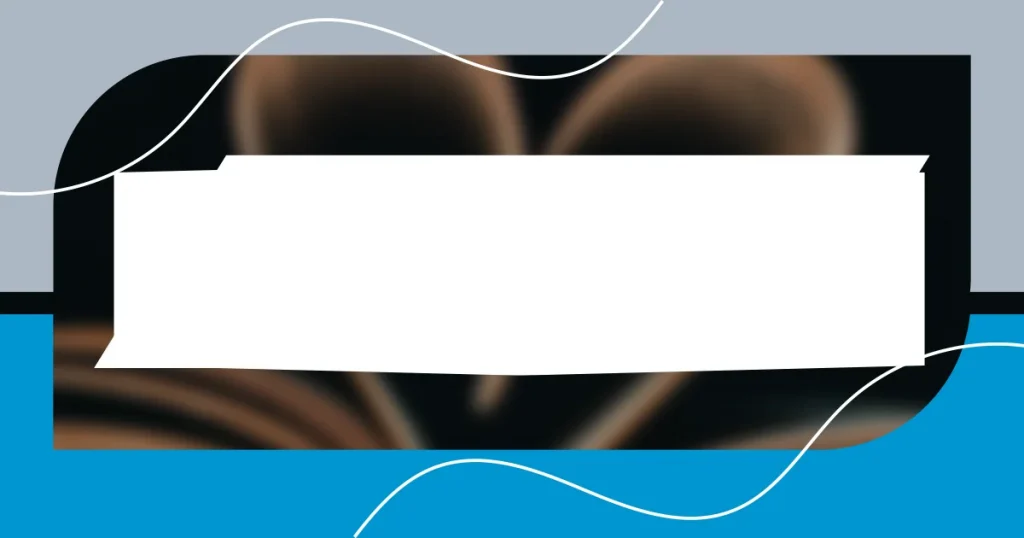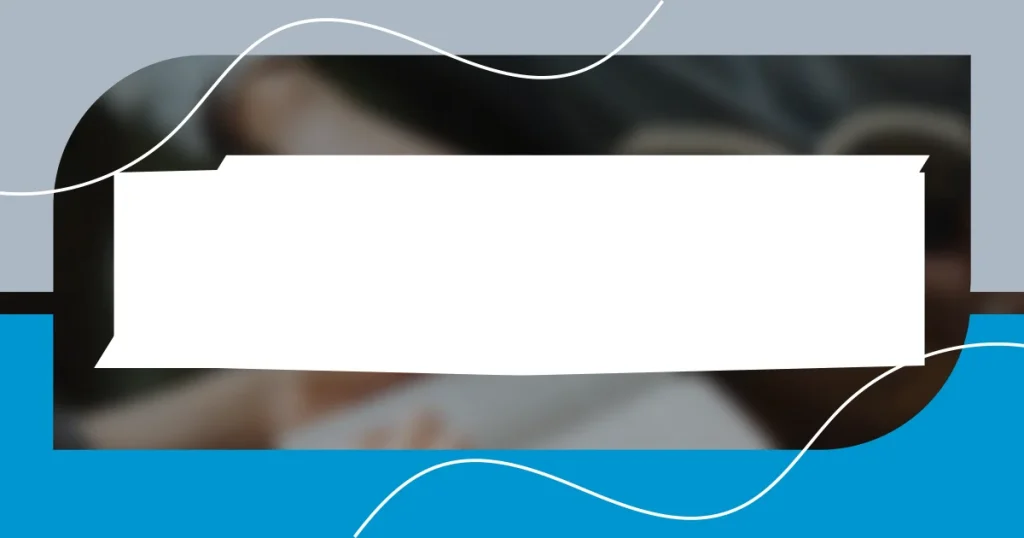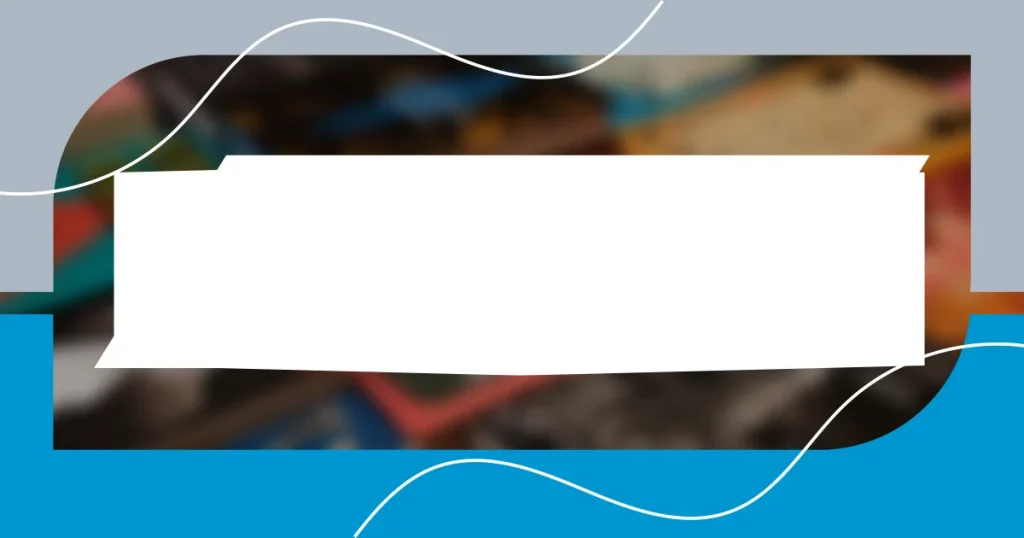Key takeaways:
- Reading challenges can stem from various factors, including dyslexia and ADHD, impacting one’s emotional engagement with reading.
- Developing personalized strategies, such as using audiobooks and creating a cozy reading environment, can significantly enhance reading experiences.
- Overcoming reading challenges leads to personal growth, increased vocabulary, and a deeper empathy for diverse experiences through literature.
Understanding reading challenges
Understanding reading challenges can be a deeply personal journey. Reflecting on my own experience, I remember feeling overwhelmed when I struggled to keep up with my classmates. It often left me questioning my abilities—why couldn’t I grasp the material as quickly as others?
Reading challenges can stem from various factors, such as dyslexia, ADHD, or even a lack of interest in the content. When I finally diagnosed my dyslexia, it wasn’t just about understanding letters and words; it was about tackling the self-doubt that had crept in over the years. Have you ever felt that sinking feeling when a page just blurs together? It’s important to recognize that these feelings are valid and that you’re not alone in facing them.
I’ve also discovered that not all reading challenges are the same. Some days, I would devour books, losing myself in their stories, while other days, the words felt like a foreign language. I often wonder how many others experience this ebb and flow. It’s a reminder that reading is not just about the mechanics; it’s an emotional engagement that can fluctuate based on a myriad of factors.
Common types of reading challenges
Understanding the different types of reading challenges allows for better empathy and strategies to cope with them. For instance, dyslexia can create unique hurdles. I remember feeling frustrated when letters seemed to dance on the page, making it tedious to decode words. ADHD, on the other hand, can hamper focus, causing my mind to wander before I even finish a paragraph. Both conditions changed how I approached reading, requiring me to adapt my strategies.
Another common challenge is the lack of interest in the material. I’ve faced moments where the subject matter didn’t resonate with me, making it feel like a chore rather than a joy. This apathy can demotivate even the most skilled readers. I had to find ways to connect with diverse genres, searching for topics that sparked a genuine curiosity. It taught me the importance of passion in reading; without it, even the simplest texts can feel insurmountable.
Lastly, visual impairments can complicate the reading experience. I recall a friend who struggled due to difficulty seeing small print. It’s essential to acknowledge that reading challenges come in many forms. While my experiences have shaped my journey, understanding these different challenges educates us on the complexities others may face as well.
| Type of Challenge | Description |
|---|---|
| Dyslexia | A learning disorder affecting reading ability, characterized by difficulty in letter and word recognition. |
| ADHD | A condition that impacts attention and focus, making it hard to concentrate on reading. |
| Lack of Interest | When the subject matter does not engage the reader, leading to disengagement and difficulty in reading. |
| Visual Impairments | Challenges in seeing text clearly, which can hinder the reading process. |
Strategies to overcome reading challenges
Tackling reading challenges can sometimes feel like climbing a mountain, but I found that developing personalized strategies can make all the difference. I remember the days when I set aside specific times for reading when my mind was most alert. It was instrumental in keeping me engaged and reducing stress. Here’s a collection of strategies that might resonate with you:
- Break It Down: Tackle reading in smaller sections. I often set a timer for 10-15 minutes; this way, I could focus without feeling overwhelmed.
- Create a Cozy Environment: A pleasant reading spot can enhance focus. I’ve made a little nook with soft lighting and my favorite blanket; it’s my reading sanctuary!
- Use Audiobooks: Instead of fighting to decode each word, hearing the story can be liberating. I began to listen and read along, which significantly improved my comprehension.
- Practice Mindfulness: Before I read, I take a few deep breaths to calm my mind. This simple step helps reduce anxiety and refocus my thoughts.
- Engage with the Material: I often jot down notes or highlight passages that speak to me. This active engagement deepens my connection with the text, making it more enjoyable.
One of the most pivotal strategies I embraced was finding genres that truly sparked my interest. I recall stumbling upon graphic novels. It was like a light bulb went off! The visual element captivated me, and before I knew it, I’d devoured a whole series. This exploration has taught me that passion can turn challenges into opportunities for joy and discovery.
My personal reading challenge journey
I started my reading challenge journey at a young age, feeling the weight of frustration whenever I opened a book. It was not just about the words; it was the overwhelming sensation of knowing I could read but often getting lost in the jumble of letters and sentences. There’s something profoundly disheartening about wanting to dive into a story but feeling as if there’s a glass wall preventing you from reaching it. Have you ever experienced that? It’s a bit like standing outside the gates of a beautiful garden and not having the key to enter.
One particularly memorable moment came when I discovered poetry. At first glance, the compact lines seemed daunting, but they quickly became a lifeline. I vividly remember the first time I read a poem that resonated with me—I felt as if the poet had put my own struggles into words. The brevity and emotional impact ignited a spark in me. I began to appreciate the rhythm and flow, realizing that reading didn’t have to be a long journey; sometimes, it could be a stroll through beautifully crafted phrases that struck a chord in my heart.
As I continued my path, I found solace in joining a book club. It was a game changer for me—discussing the stories with others not only enriched my understanding but also bolstered my confidence. I remember sharing my thoughts on a novel, feeling the warmth of support and understanding from fellow readers. It made me wonder: isn’t it fascinating how community can transform a solitary task into a shared experience? The encouragement I received turned my challenges into a celebration of stories and connections, reshaping how I viewed reading altogether.
Tools that helped me read
When I was struggling with reading, I stumbled upon digital tools that changed everything for me. I downloaded an app that allowed me to highlight text and add notes—suddenly, I felt like I could interact with the material rather than just passively consuming it. Some days, I would just sit with my phone, tapping through pages while listening to the audio version. It was amazing to see how integrating technology made reading more accessible and enjoyable. Have you ever tried a reading app? You might be surprised at how it can transform your experience.
Visual aids also played a significant role in my journey. I remember creating colorful mind maps for complex stories. This method not only helped me organize thoughts but also made the narratives more vivid in my mind. Each branch would represent a character or theme, and I could visually explore the connections. It’s interesting how seeing ideas laid out can help solidify understanding. Has anyone else used visual tools like this? If you haven’t, I highly recommend giving it a try.
Another gem I discovered was the use of reading guides. These guides offered a structured breakdown of the text, which prevented me from feeling overwhelmed. While reading a challenging novel, I often referred to summaries or discussion questions to keep me focused and engaged. I distinctly recall finishing a particularly dense chapter and then glancing at a guide—it was like getting a helping hand that lifted me over a hurdle. This made me wonder: how much easier could reading become with the right support? Learning to leverage these tools was a revelation, opening up a world of literature I once found daunting.
Tips for maintaining reading habits
One effective way to maintain your reading habits is to carve out dedicated reading time each day. I found that setting aside just 15 minutes in the morning with my coffee created a ritual I looked forward to. It became a gentle way to transition into my day, almost like a warm-up for my mind. When was the last time you gave yourself permission to simply indulge in a few pages? That becomes a crucial question as I reflect on my own journey.
Another strategy that worked wonders for me was to keep a reading log. I started jotting down my thoughts and favorite quotes from each book. This practice not only allowed me to track my progress but also to reflect deeper on what I was reading. I remember flipping back through my notes and experiencing a rush of nostalgia as I relived those moments. Have you ever wished to revisit those feelings you had when turning the last page of a stirring book? Well, a reading log can be your personal time capsule for literary treasures.
I also discovered the power of diverse reading materials. When I began mixing genres—suddenly hopping from mystery to memoir—it kept my excitement levels up. I distinctly recall devouring a gripping thriller after a slower-paced classic, and it felt like a refreshing change of pace. How about you? Have you explored different genres to find what truly sparks your interest? That realignment was transformative for me, and it’s something I encourage everyone to try.
Benefits of overcoming reading challenges
Overcoming reading challenges brings a profound sense of accomplishment. I still remember the first time I tackled a thick novel that had once seemed insurmountable. As I turned the final page, I felt a rush of pride—not just for finishing the book, but for proving to myself that I could conquer something I once avoided. Isn’t it empowering to realize that what once held us back can become a source of strength?
The benefits extend beyond personal satisfaction; they offer real-world advantages too. When I finally developed a love for reading, I noticed my vocabulary expanded dramatically. Engaging with varied texts opened my mind to new ideas and perspectives. Have you ever felt your world grow simply by immersing yourself in a good story? That’s exactly what happened for me, as I became more articulate and confident in my communication skills.
Moreover, overcoming these hurdles enhanced my ability to empathize with others. I found that diving into different characters’ journeys helped me understand diverse experiences and emotions that don’t mirror my own. I often reflect on a story where a character faced a dilemma I hadn’t understood before; it opened my eyes. Can books bridge our understanding of one another? I truly believe they can, helping us to cultivate a deeper connection with those around us.











